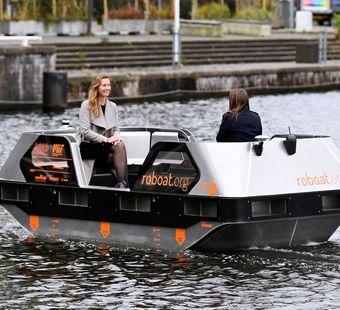With Malaysians stuck at home for nearly three months during the MCO / CMCO period, many got creative greening up their home spaces.
Art teacher, Khalisah Zakaria, took the opportunity to upgrade the back and side gardens of her semi-detached home in Kajang. After researching how to care for her garden, she started composting, began to nourish the soil better and tried her hand at some new plants, like chilli and basil.
“Now I am beginning to harvest passionfruit, pineapple, banana, various herbs and ulam that both my mother and I can enjoy,” she says.
City slicker with green thumbs
In a metropolis like KL, not everyone is lucky enough to have a garden, but even those who live in high-rise apartments can carve out an enviable green space in their homes.
Scholar, food stall operator and caterer, Hera Bahriza, is now a master of DIY home gardening using only her 4 metre by 1 metre balcony.
“Urban home gardening will not be sufficient or cost efficient as a regular source of food, but as a hobby, it is very therapeutic,” says the businesswoman whose balcony now houses a huge diversity of plants, from basil, bak choy and calamansi to roses and orchids.
Working with an even smaller space, documentary filmmaker Lydia Lubon turned her windowsill into a verdant haven: “Originally, I only had three plants barely hanging on to life.
“Then COVID happened and the highlight of my day became watering my plants!”
Lydia shared the fruits of her labour in a video for the Free Tree Society (FTS), where she works part-time.
“My windowsill is now my pride and joy,” she gushes.
Wealth of resources
As awareness about urban gardening grows, KLites can access a wealth of resources to create a thriving piece of nature in their homes. From online articles catering to our tropical conditions to local nurseries who are always happy to advise newbies to social media support groups that share tips, it’s never been simpler.
Lydia’s work with FTS has given her the support and confidence to grow a wide range of flora in even the smallest of spaces. The environmental organisation gives away free plants to make starting as easy as it gets!
“First timers can also join our hands-on gardening workshops to learn planting basics,” says FTS President, Baida Hercus.
She also recommends their Rewilding Roadshow which was developed for the express purpose of inspiring people to garden in small urban spaces.
“You can grow vertically with hedges, climbing plants, shelving or vertical systems that are space saving wonders,” Baida advises. “No space is too small!”
Creative recycling
Both Hera and Khalisah believe your personal conditions and regular habits should form the basis for consistent success in gardening.
“Save seeds and cuttings from the food you eat. And use any available material you can find at home as your starter kit,” Khalisah says, recommending plastic packaging, from boba tea containers to oil bottles.
Hera keeps her costs low with creative reuse of everyday household objects like styrofoam boxes, oil canisters and foldable clothes racks. She also uses natural methods for plant health, like creating a fish tank with symbiotic plants and planting flower bushes between vegetables to help with pest control.
“I have never bought fertiliser as I use what I have at home,” Hera says, listing out examples like watering with the water used to wash rice, using leftover tea, coffee and eggshells for flower and fruit trees and rotting leftover fruit for the fern paku langsuir and epiphyte tanduk rusa.
The ultimate recycling for gardeners has to be collecting household food waste for composting.
“Take the time to improve your soil with compost, minerals, and worms!” Baida says. “When plants are getting the right nutrients, they don’t just grow well, they actually repel pests and diseases.”
“Traditional composting techniques used to take up a lot of space. However, nowadays, it’s possible even in tiny, enclosed spaces,” Khalisah explains based on her attempts with vermi and bokashi composting.
For Hera, composting does not have to be expensive: “You can get worms from fishing shops, and I use my fish tank to help with worm and microorganism growth that can all go towards enriching your soil. I water my plants with fish tank water once a week for extra goodness.”





